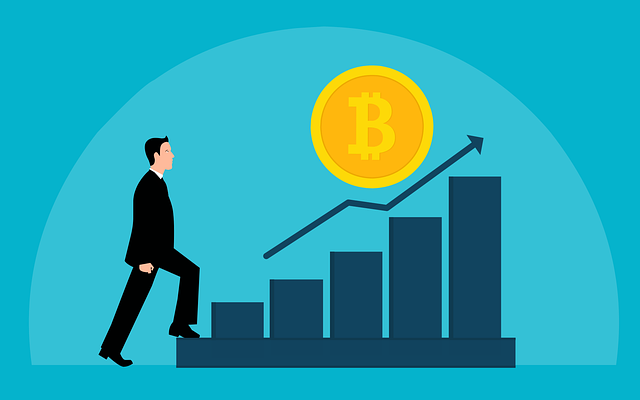Table of Contents
How Bitcoin Works
Bitcoin, a digital currency created in 2009 by an unknown person or group using the pseudonym Satoshi Nakamoto, operates on a decentralized network known as blockchain. This innovative technology allows for peer-to-peer transactions without the need for intermediaries like banks or financial institutions. Each transaction is recorded on a public ledger that is transparent and immutable, ensuring the security and authenticity of the transactions.
To participate in the Bitcoin network, users need a digital wallet to store their Bitcoins securely. These wallets come in various forms, such as software wallets, hardware wallets, or even paper wallets. Each wallet has its own unique address, which is a string of alphanumeric characters used to send and receive Bitcoins. Transactions are verified by network nodes through cryptography and recorded on the blockchain, making them secure and tamper-proof.
Setting Up Your Bitcoin Wallet
After deciding to dive into the world of cryptocurrencies, the first step is setting up your Bitcoin wallet. This secure digital wallet acts as your personal bank where you store, send, and receive Bitcoins. Think of it as a virtual safe that holds your digital currency. To begin, you’ll need to choose a reputable wallet provider that aligns with your needs and preferences. Research and compare different options to find one that offers a user-friendly interface, strong security features, and reliable customer support.
Once you have selected a wallet, the next step is to create an account by providing your email address and setting a strong password. Some wallets may also require you to undergo a verification process to enhance security measures. After successfully setting up your wallet, you will be provided with a unique Bitcoin address, which serves as your identifier in the network. This address allows you to send and receive Bitcoins securely and anonymously, ensuring that your transactions remain private and protected.
Finding a Reliable Peer
As you delve into the world of peer-to-peer transactions in the realm of Bitcoin, one crucial aspect to consider is finding a trustworthy peer to engage with in your transactions. In the ever-evolving landscape of digital currency, trust is paramount, and it is essential to exercise diligence when selecting a peer to transact with. Whether you are buying or selling Bitcoin, partnering with a reliable peer can significantly impact the success and security of your transaction.
When seeking out a reliable peer, it is advisable to conduct thorough research on various platforms and individuals to gauge their reputation and credibility within the Bitcoin community. Look for peers with a track record of successful transactions and positive feedback from previous counterparts. Additionally, consider engaging in forums and community discussions to get insights from other users about their experiences with different peers. By taking these precautions, you can enhance the likelihood of a smooth and secure peer-to-peer Bitcoin transaction experience.
Initiating a Peer-to-Peer Transaction

When it’s time to initiate a peer-to-peer transaction, ensuring accuracy at each step is paramount. Begin by confirming the recipient’s wallet address, double-checking it to avoid any errors. Next, enter the desired amount in the designated field, being mindful of any additional fees that may apply. Once all details are in place, proceed to execute the transaction and await confirmation of its completion. Patience is key during this process, as blockchain networks may experience varying transaction times depending on network congestion.
As the transaction is being processed, it’s important to stay vigilant and monitor its progress via the blockchain explorer. This tool allows you to track the transaction’s status in real-time, providing transparency and peace of mind. Once the transaction is confirmed and successfully added to the blockchain, you can rest assured that your funds have been securely transferred to the intended recipient. Remember, each peer-to-peer transaction is a unique interaction, so approach each one with care and attention to detail.
Verifying the Transaction
When a transaction is initiated in a peer-to-peer network, it undergoes a crucial verification process to ensure its authenticity and integrity. This verification is carried out by miners, who compete to solve complex mathematical puzzles in a process known as proof-of-work. Once a miner successfully solves the puzzle, the transaction is added to a block and appended to the blockchain, creating a secure and immutable record of the transaction history. This verification process ensures that each transaction is valid and cannot be tampered with, providing a trustless and decentralized system for transferring digital assets.
Furthermore, the verification of a transaction plays a pivotal role in maintaining the stability and security of the entire blockchain network. By requiring consensus among the majority of the network participants, the verification process acts as a safeguard against fraudulent or malicious activities. This distributed consensus mechanism ensures that no single entity can control or manipulate the transaction history, fostering transparency and trust within the peer-to-peer ecosystem. As a result, verifying transactions not only confirms the legitimacy of individual transactions but also upholds the overall integrity and reliability of the blockchain network.
Understanding Transaction Fees
Transaction fees in the world of Bitcoin are essential for ensuring the smooth processing of transactions on the blockchain network. These fees serve as incentives for miners to validate and include transactions in the next block. The amount of transaction fees is determined by the congestion on the network and the urgency of the transaction. When the network is busy, users may choose to increase the transaction fee to expedite the processing of their transaction. Conversely, during times of low network activity, users may opt for lower fees to save on costs.
It’s important to note that transaction fees are directly tied to the size of the transaction in bytes, rather than the amount of Bitcoin being transferred. Larger transactions that require more data to process will incur higher fees compared to smaller transactions. Understanding how transaction fees are calculated can help users make informed decisions when sending Bitcoin. By staying informed about current fee structures and network conditions, users can optimize their transactions to strike a balance between speed and cost efficiency.
Ensuring Security Measures
The safety of your digital assets in the realm of peer-to-peer transactions is paramount. Ensuring utmost security measures is essential to safeguard your funds against potential threats in the volatile crypto landscape. Implementing strategies like multi-factor authentication, utilizing secure communication channels, and regularly updating your wallet software can significantly reduce the risk of unauthorized access to your funds. Moreover, choosing a reputable and secure peer-to-peer platform with robust encryption protocols adds an extra layer of protection to your transactions.
In addition to technical precautions, staying vigilant and aware of common scam tactics is crucial to maintaining the security of your transactions. Be wary of unsolicited offers, phishing attempts, or suspicious requests for personal information, as these could be red flags for fraudulent activities. Remember to conduct thorough research on the peer you are dealing with, verify their reputation within the community, and cross-check transaction details to ensure accuracy. By staying informed and proactive in your security practices, you can navigate the peer-to-peer space with confidence and peace of mind.
• Multi-factor authentication can enhance security
• Using secure communication channels is important
• Regularly updating wallet software reduces risk of unauthorized access
• Choosing a reputable peer-to-peer platform with encryption protocols adds protection
In addition to technical measures, awareness of common scam tactics is vital for security.
• Be cautious of unsolicited offers and phishing attempts
• Avoid sharing personal information with suspicious sources
• Research peers and verify reputation before transacting
By staying informed and proactive in security practices, you can navigate the peer-to-peer space confidently.
Resolving Disputes
Disputes in peer-to-peer transactions can arise due to misunderstandings or conflicting expectations between parties. When such situations occur, it is crucial to handle them with tact and diplomacy to reach a resolution amicably. Communication is key when navigating disputes, as calmly expressing concerns and actively listening to the other party’s perspective can often pave the way for a mutually agreeable solution.
In cases where direct communication fails to resolve the dispute, seeking the guidance of a neutral third party or escrow service can provide a fair and unbiased assessment of the situation. These mediators can help facilitate discussions, clarify misunderstandings, and propose solutions that consider the interests of all involved parties. Leveraging such resources can be instrumental in reaching a resolution that upholds the integrity of the peer-to-peer transaction and preserves the trust within the community.
Protecting Your Privacy
In the realm of peer-to-peer transactions, safeguarding your privacy is paramount. By employing encryption techniques and utilizing privacy-focused tools, users can mitigate the risks associated with sharing personal information during transactions. Embracing anonymity protocols such as Tor and utilizing virtual private networks (VPNs) can add layers of protection to your online interactions, shielding your identity from prying eyes.
Furthermore, practicing discretion when revealing personal details and refraining from disclosing unnecessary information can help maintain a semblance of privacy. By compartmentalizing the data shared during transactions and limiting the exposure of sensitive information, users can minimize the likelihood of data breaches and unauthorized access. Prioritizing privacy in peer-to-peer interactions not only fosters a sense of security but also upholds the integrity of the transactional process.
Exploring Different P2P Platforms
When venturing into the realm of peer-to-peer transactions, it is essential to delve into the variety of platforms available to cater to your specific needs. Platforms differ in terms of security features, transaction speeds, and user interfaces. Some popular platforms include LocalBitcoins, Paxful, and Bisq. These platforms offer varying levels of anonymity, ease of use, and customer support, so it is crucial to research and choose one that aligns with your preferences.\
Furthermore, exploring different P2P platforms allows users to gain a deeper understanding of the diverse opportunities and risks associated with each platform. By experimenting with various platforms, users can broaden their knowledge and expertise in navigating the dynamic world of peer-to-peer transactions. From centralized exchanges like Coinbase to decentralized platforms like Hodl Hodl, each platform presents unique advantages and challenges, providing users with a rich tapestry of experiences to draw insights from.
Learning from Past Transactions
When engaging in peer-to-peer transactions using Bitcoin, reflecting on past transactions can offer valuable insights for future dealings. By reviewing previous exchanges, users can identify patterns, trends, and potential pitfalls to avoid in their subsequent interactions. Analyzing transaction histories can also help users fine-tune their strategies, optimize their decision-making process, and enhance their overall transaction experience.
Moreover, learning from past Bitcoin transactions can empower users to make informed decisions, adapt to changing market dynamics, and continually refine their approach to peer-to-peer interactions. It enables them to leverage their past experiences, successes, and challenges as valuable learning opportunities that contribute to developing a deeper understanding of the cryptocurrency landscape. Ultimately, the ability to draw lessons from past transactions equips users with the knowledge and skills necessary to navigate the evolving world of digital currency with confidence and proficiency.
Keeping Up with Regulatory Changes
Regulatory changes in the cryptocurrency space can have a significant impact on how peer-to-peer transactions are conducted. As governments and financial institutions around the world grapple with the appropriate regulatory framework for cryptocurrencies like Bitcoin, it is essential for participants in the peer-to-peer ecosystem to stay informed and adaptable. This means keeping a close eye on new laws and guidelines that may affect the legality or convenience of conducting P2P transactions.
Being aware of regulatory changes can help users navigate potential hurdles or compliance requirements that may arise. For example, recent updates in tax regulations regarding the reporting of cryptocurrency transactions could impact how individuals engage in peer-to-peer exchanges. By keeping up to date with these regulatory shifts, participants can proactively adjust their strategies to stay compliant and protect their interests in the evolving landscape of P2P transactions.
Expanding Your P2P Network
As you become more familiar with peer-to-peer transactions, you may find it advantageous to expand your network. By connecting with other users who share similar interests or trading goals, you can increase the opportunities for mutually beneficial exchanges. Building a diverse network can also provide access to a wider range of assets or services, enabling you to diversify your portfolio and mitigate risks.
Seeking out reputable forums, social media groups, or online communities dedicated to peer-to-peer transactions can be a valuable resource for expanding your network. Engaging in discussions, sharing insights, and participating in group activities can help you establish connections with like-minded individuals. Additionally, attending local meetups or networking events focused on cryptocurrency and P2P trading can offer opportunities to collaborate with peers in person and further enhance your network.


